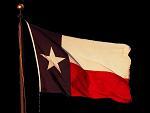What Exactly Is a Leader?
Last week in the Washington Post, columnist Jabari Asim had an very interesting op-ed piece that raised a very interesting question: "Who Represents Black America?"
He begins with a bit of a stretch, comparing and contrasting the respected educator and statesman Booker T. Washington with the current president of the NAACP, Bruce Gordon. One of the main thrusts of Washington's message was always that black Americans, who had so recently won their freedom, should "secure their constitutional rights through their own economic and moral advancement rather than through legal and political changes." However, as Mr. Asim so aptly points out, today's so-called black leaders live in a very different world.
Mr. Asim describes a recent meeting between President Bush and Mr. Gordon, who brought along a bevy of other self-acclaimed, non-elected "black community leaders." That group reportedly included:
So we return to the original question: Who represents black America?
Perhaps the problem is in the question itself. Why do we continue to segregate ourselves from the rest of American society, constantly labeling ourselves as "black America" or "African-Americans"? The question is not, "Who represents black America?" but, "Who represents America?" As long as black Americans, and other so-called minority segments of the United States citizenship, participate in the political and electoral process, the answers are one and the same.
Who really represents America? Our elected officials.
Or at least, they're supposed to...
He begins with a bit of a stretch, comparing and contrasting the respected educator and statesman Booker T. Washington with the current president of the NAACP, Bruce Gordon. One of the main thrusts of Washington's message was always that black Americans, who had so recently won their freedom, should "secure their constitutional rights through their own economic and moral advancement rather than through legal and political changes." However, as Mr. Asim so aptly points out, today's so-called black leaders live in a very different world.
Gordon and his peers operate in a vastly changed landscape that includes a largely dissolute and apathetic black middle class. Still, Hurricane Katrina and its racially tinged aftermath have stirred in the poor and compassionate those feelings of gloom and discouragement so similar to the ones Washington noted long ago. And the same question remains: Can anyone speak on behalf of all African-Americans?First and foremost, anyone attempting to do so should drop the whole "African-American" label, as very few of us have ever had anything to do with Africa. We are Americans, just as are those descended from European, Asian and/or South American ancestors.
Mr. Asim describes a recent meeting between President Bush and Mr. Gordon, who brought along a bevy of other self-acclaimed, non-elected "black community leaders." That group reportedly included:
- Donna Brazile, Democratic Party strategist (and campaign manager for Al Gore's 2000 presidential bid)
- Dorothy Height, former president of the National Council of Negro Women
- Debra Lee, chief operating officer of BET-TV
- Marc Morial, president of the National Urban League
- Ted Shaw, president of the NAACP Legal Defense Fund
- Rev. William Shaw, president of the National Baptist Convention
- H. Patrick Swygert, president of Howard University
- Rep. Melvin Watt, D-N.C., chairman of the Congressional Black Caucus
It all depends, I suppose, on what your definition of "leader" is. Some of the folks in Gordon's company are elected heads of national organizations and can be said to represent a measurable constituency. But does that fact alone mean that, Rev. Shaw, for example, can address the concerns of black non-Baptists? That he even knows what those concerns are? And can Debra Lee, who runs a television network best known for its sexist, misogynist rap videos, effectively "lead" the millions of African-Americans who scorn such fare? Perhaps she can, but it is still a question worth asking.Of course, we can add others to that group of "aspiring leaders" who were not included. Louis Farrakhan. Quanell X. Sheila Jackson Lee. And there are many others. But as Mr. Asim points out, how can you have a leader that represents a large segment of the population without true representation of all?
It is a question worth asking as well to people such as Jesse Jackson and Al Sharpton, who, interestingly, were not invited to the meeting. ... When non-elected African-Americans, however prominent and successful they may be, aspire to leadership, they need to be able to demonstrate who they are speaking for and how many are in that privileged group.
So we return to the original question: Who represents black America?
Perhaps the problem is in the question itself. Why do we continue to segregate ourselves from the rest of American society, constantly labeling ourselves as "black America" or "African-Americans"? The question is not, "Who represents black America?" but, "Who represents America?" As long as black Americans, and other so-called minority segments of the United States citizenship, participate in the political and electoral process, the answers are one and the same.
Who really represents America? Our elected officials.
Or at least, they're supposed to...




1 Comments:
Or at least, they're supposed to...
Kind of like with this new Abrahamoff mess everybodys talking about now. This thing has the potential to really uncover a lot of dirt on elected officials from both parties. Makes you wonder if they are really representing us, or just the lobbyists!
Post a Comment
<< Home